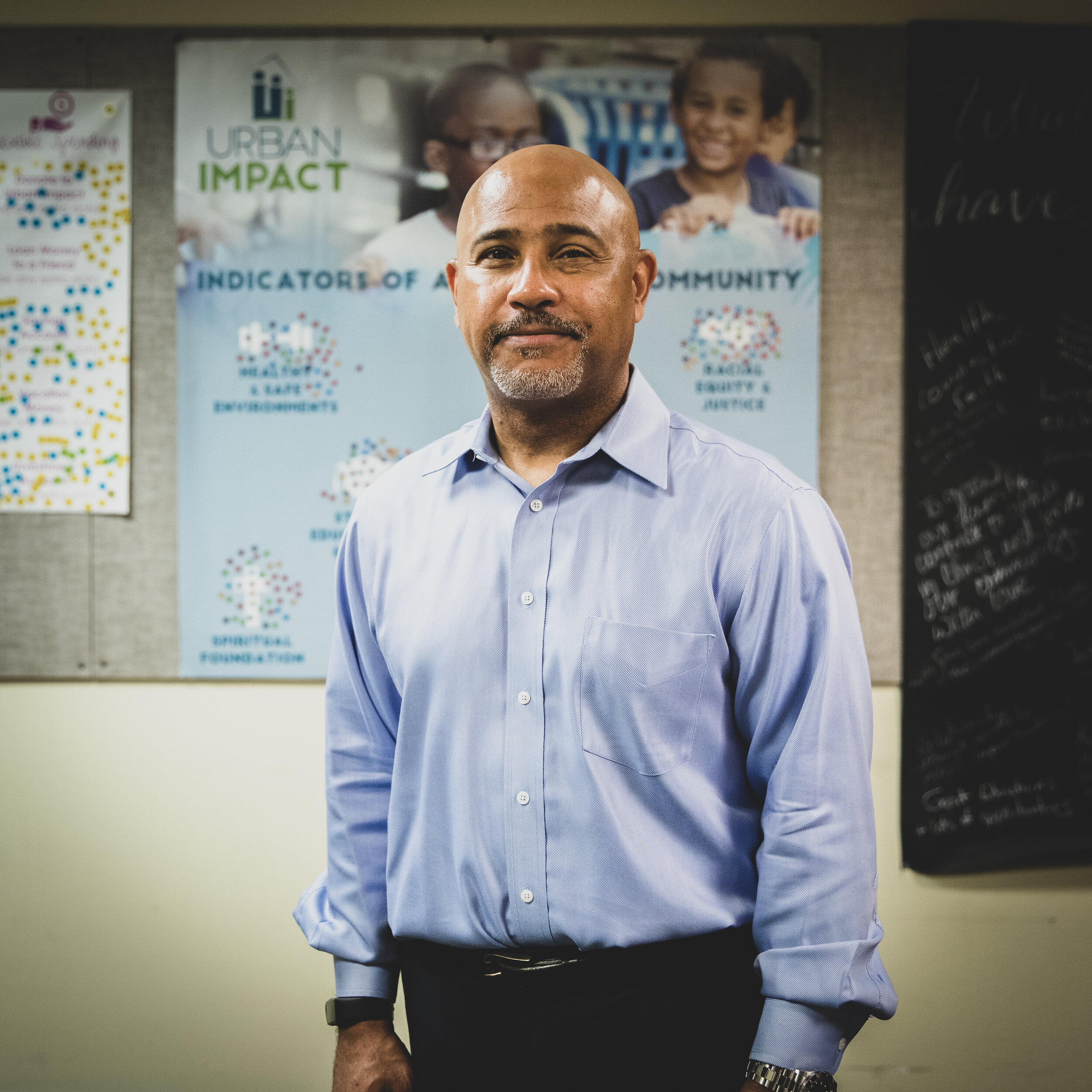Urban Impact - B.J. Stewart
B.J. Stewart - Urban Impact
B.J. Stewart - Interview Transcript
So about eight years ago, we listened to the community, and the community said, "Hey Urban Impact, you guys are doing a lot of great work. We want you to do more about economic development." Was a very broad term. Where does Urban Impact best fit into that? And we came down with economic development supporting local entrepreneurs is the best fit relative to our skills, capabilities and passion. That gave birth to our entrepreneurial program called Sharks at the Beach. It's done in partnership with Seattle Pacific University. It focuses on very early-stage enterprises, or those folks in the community that have a thought of an idea in their head, or their might have a side hustle or hobby that they wanna grow, but they just don't know how. Well, that incubator is called Sharks at the Beach.
And it is a four-month program that starts with instruction with Seattle Pacific University social venture planning class, so we learn the basic fundamentals of putting together a business plan and vetting your idea. We prepare those participants to pitch, and then on this year, June 18th, is the culminating event, the Sharks at the Beach Social Venture Pitch Event. It is an event that takes a lot of notes from the popular television show, "Shark Tank," but it is hyper-local, and is the communities supporting those entrepreneurs launching their business ideas. So in September 2019, we launched Urban Impact's Business Accelerator to provide us the second level of support for those Sharks at the Beach entrepreneurship alum, and then to enable us to support other local small businesses.
So as we were engaging with both our Sharks at the Beach and our Accelerator programs, COVID-19 hits, right? So you go oh, what do organizationally, what do we do? Because all of our programming had to shut down. Very quickly, we pivoted to online training, online coaching, online mentorship. And our Sharks at the Beach cohort, our accelerated cohort, which were running simultaneously, both really took to that very well. We were initially concerned about the level of relationship engagement, 'cause we are a relationship-based program. We saw both the entrepreneurs, our coaches, mentors, staff, all equally engaged in the outcomes of the entrepreneurs. So we're very excited about that.
They say that necessity is the mother of invention. Well, crisis is the mother of collaboration. Couple of weeks ago, we did the Surviving COVID-19, What Your Enterprise Can Do workshop, and that was a collaboration that I hope continues beyond this. Seattle Office of Economic Development, Africa Town, Black Dot, Urban Impact, Ventures Non-profit, and the Central Area Collaborative. All organizations that have a singular focus of serving hyper-local communities and under-resourced communities. And by us coming together, we were able to leverage all of our resources for the benefit of those end users, in this case, under-resourced entrepreneurs, under-resourced businesses.
Because as we support entrepreneurs to build social capital through coaching and mentorship, build knowledge capital through business training and connect them with the resources–that will accelerate them to a level of economic sustainability that will allow them to provide security, financial security, for their families. And enable them to hire people, which will provide financial security for that family, and to pay for their kids' education, and to buy a house, and all those things that, when you think of a thriving neighborhood, what is it comprised of? Our supportive local entrepreneurs really covers those bases and builds those foundation building blocks.







